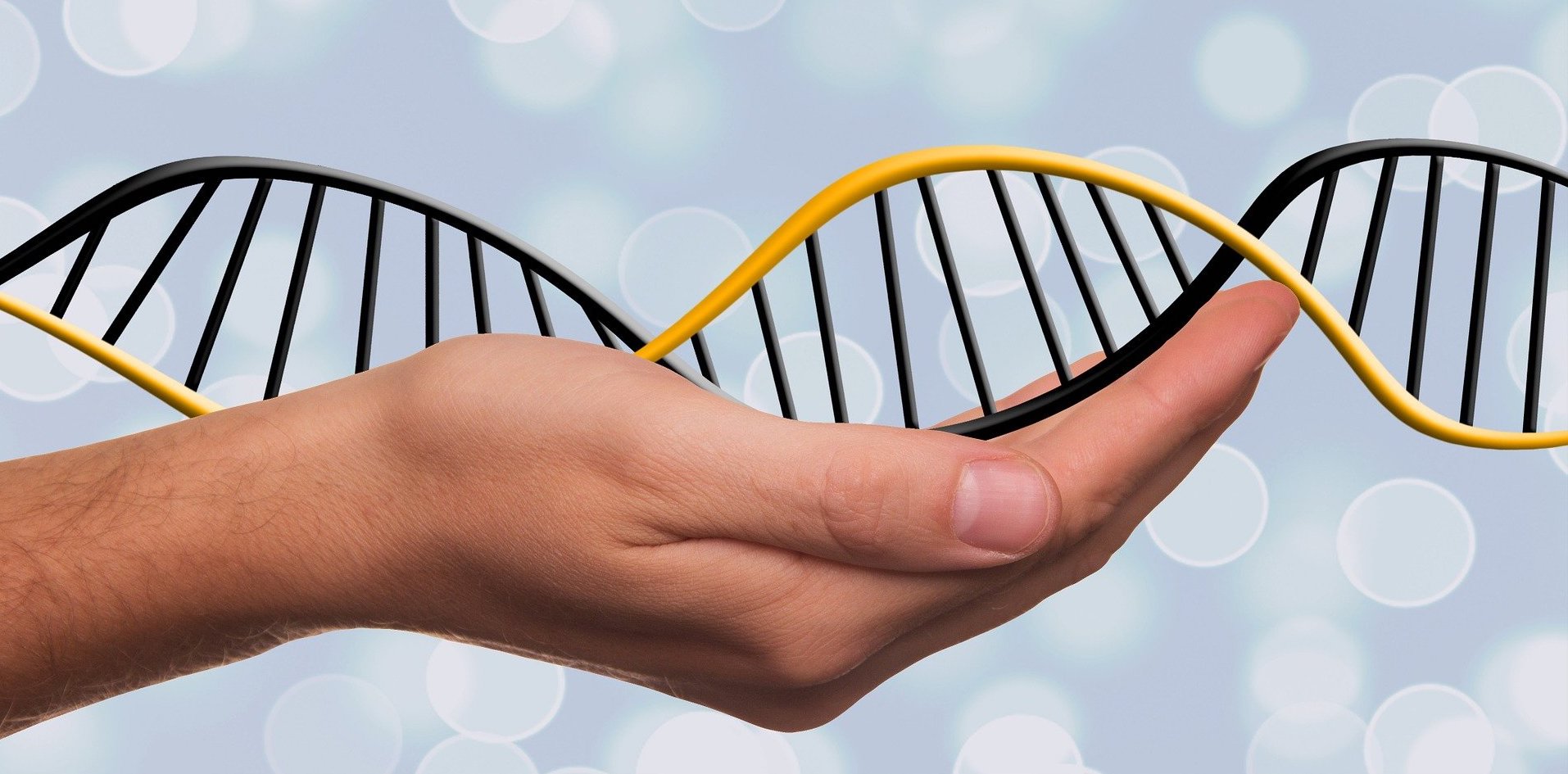
Gerd Altmann, Pixabay
This week Emmanuelle Charpentier and Jennifer Doudna were awarded a joint Nobel Prize for their work in developing a ‘genetic scissors’ system called CRISPR-Cas9, or CRISPR for short. This technology uses parts of a bacterium’s immune system: molecules that can disarm a virus by snipping its DNA into pieces. Charpentier, Doudna and their co-workers were able take these naturally-occurring molecules and modify them so they that can be used to cut DNA at any chosen location. Since their ground-breaking work in 2012, the scientific world has been working to understand and refine this technology – and demonstrating its power. For the first time we can accurately cut and paste the DNA of living organisms in a reasonably efficient way.
This technique allows scientists to understand more about the normal working of our bodies and those of other living organisms, and study disease mechanisms in detail. It is already used in agriculture in the US, and clinical applications for treating genetic diseases such as sickle cell disease or cystic fibrosis are being explored. Of course this incredibly powerful technology also raises all sorts of ethical questions. Is it ok to modify the genome? Which diseases should be treated? Should we modify the genome of the next generation?
In 2015 Doudna and a number of other experienced biologists called for a worldwide moratorium on using this system in clinical treatments until the ethics have been thought through on a global scale. This concern was at least partly vindicated by the 2018 scandal of a scientist using CRISPR- on human subjects without following – and in some cases going against – the proper ethical procedures for a clinical trial.
The Christian community should be informed about both the opportunities and the challenges posed by CRISPR, and the links here will help you to do that.
Nobel Prize announcement, with information about the discoverers and their work.
Non-technical explanation of CRISPR-Cas9 and its uses.
Jennifer Doudna explains Crispr-Cas9 and explores the ethics of its use: 2 animated videos & article, TED talk.
‘Thinking About…’ – series of very short introductory articles by Christians in Science, including Human Enhancement, Genes and Embryos (includes Crispr-Cas9), Genetic Modification, and Bioethics.
Denis Alexander, Healing, Enhancement and the Human Future – non-technical paper, including discussion of Crispr-Cas9 and Christian theology, from the Jubilee Centre, Cambridge.
Trevor Stammers, The Ethics of Gene Editing – brief theologically based ethical paper from the Christian Medical Fellowship.
The challenges of recent developments in genome modification, Christians in Science lecture by Keith Fox.
Denis Alexander, Are We Slaves To Our Genes? (CUP, 2020), £14
New title coming in 2021: Alexander Massmann and Keith Fox, Modifying Our Genes: Theology, Science and “Playing God” (SCM Press, March 2021)




